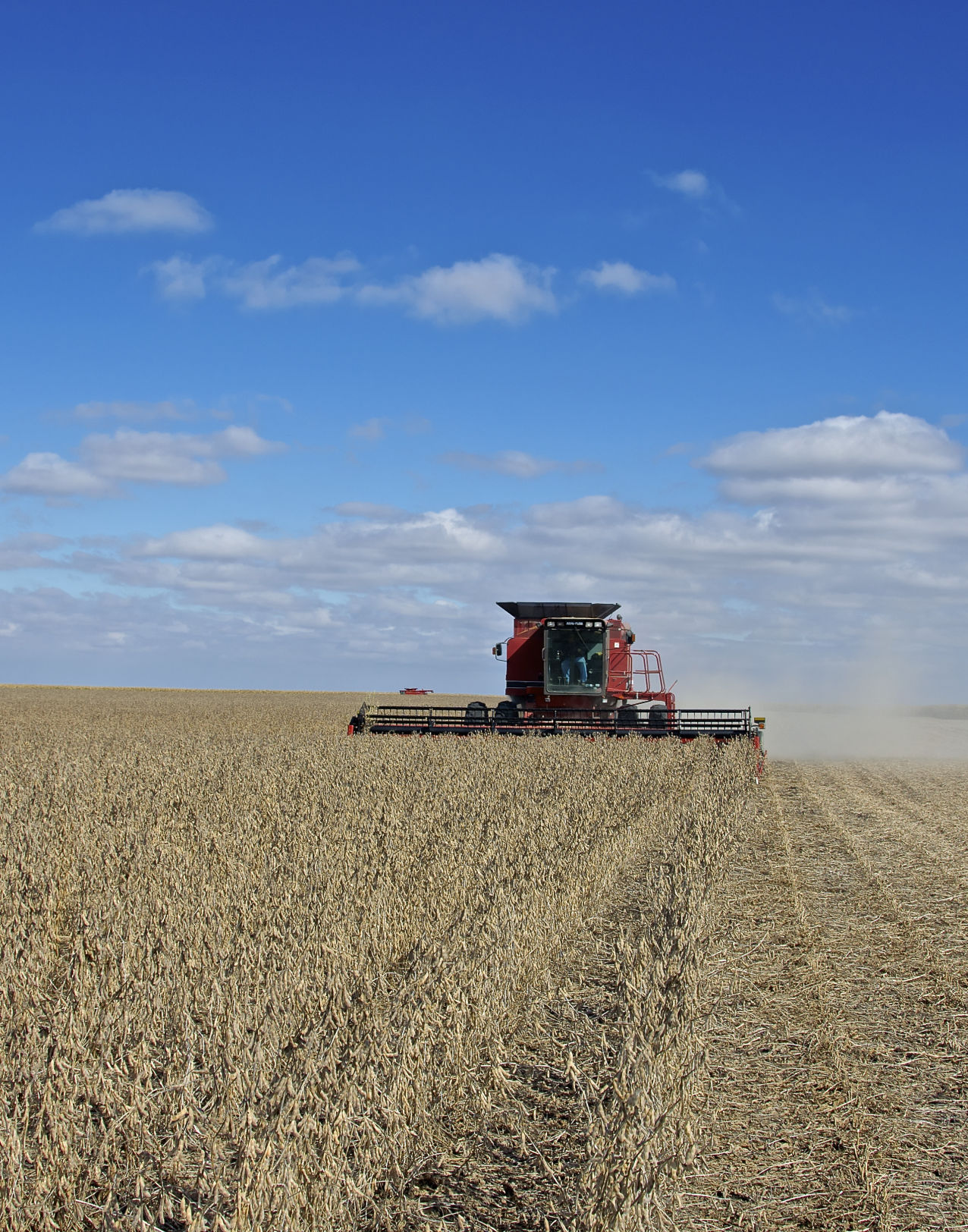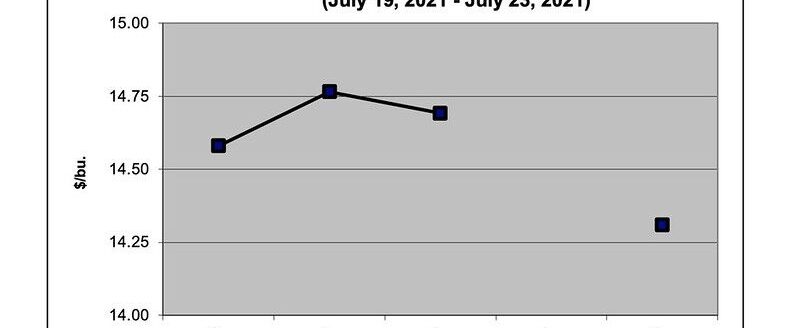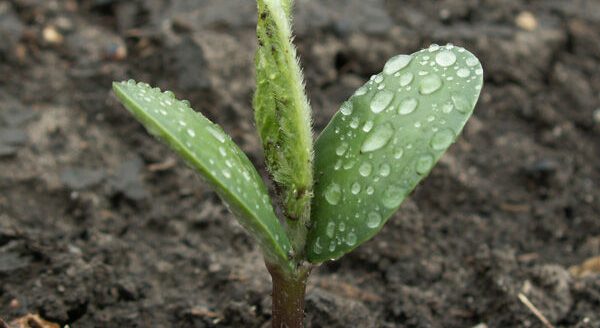Arkansas is ground zero for the debate about dicamba herbicide, with farmers on both sides of the issue. The off-target movement of dicamba has damaged non-dicamba tolerant soybean varieties, plus many other dicamba sensitive plants.
According to the Arkansas State Plant Board there were 998 alleged dicamba complaints in 26 counties as of Jan. 31. Mississippi County had the most complaints with 254. Out of the 998 alleged complaints, 305 dicamba case files have been received from field inspectors for office review.
Dicamba is a broad spectrum herbicide and is used to control annual broadleaf weeds in grain crops and grasses, according to university experts who study its use.
Terry Walker, director of the Arkansas State Plant Board, said 109 of those case files are closed and pending final committee/board approval or have been approved. Another 96 cases are under active review by staff; 43 case files have been preliminarily reviewed and are pending additional information from field staff; and 57 case files are pending initial review by the staff.
In December the Arkansas State Plant Board proposed a statewide ban on the use of dicamba in 2018. On Jan. 16, the Administrative Rules and Regulations Subcommittee of the Arkansas Legislative Council reviewed and approved the rule proposed by the Arkansas State Plant Board to prohibit the use of dicamba in Arkansas between April 16 and Oct. 31 of this year, which means that soybean and cotton growers will not be able to use over-the-top applications of Monsanto’s Xtendimax or BASF’s Engenia varieties. Three days later, on Jan. 19, the Legislative Council approved this action. Arkansas is the only state to enact a seasonal ban after the 2017 growing season when there were thousands of dicamba related complaints from growers throughout the Midwest.
When the ban was first proposed, Arkansas’ Administrative Rules and Regulations subcommittee sent it back to the plant board for further review. The members of the subcommittee wondered if it was possible to divide the state into two growing zones for purposes of the regulations. The state plant board rejected this change.
J.T. Hood, president of the Arkansas Soybean Association, sees a regional split in the debate over the dicamba ban with the association’s members on both sides of the issue. Some growers believe they really need dicamba-resistant crop technology, while others believe the technology does more harm than good.
“It seems to me that growers in northeast Arkansas have had issues with pigweed for more years than we have had in the southeast part of the state where I am located,” Hood said. “A lot of those growers felt like they needed the technology.”
Michael McCarty, from northeast Arkansas, has actively opposed the dicamba ban since it was first proposed. McCarty was part of group called “Arkansas Farmers Need Dicamba” that traveled to Little Rock to state their case before the Legislative Council. Now that the ban has been approved, he is part of a group of farmers that has filed a lawsuit against the state plant board to stop the ban.
“We are not political people but we just can’t even imagine why they are taking a technology away from us that works,” said McCarty. “I will plant this technology this year regardless of whether I can spray dicamba or not because of the genetics that are in those varieties.”
McCarty and five other farmers have filed a lawsuit against the Arkansas State Plant Board asking for a declaratory judgment, injunctive relief and judicial review of the ban on dicamba. The plaintiffs allege that the State Plant Board has exceeded its statutory authority and is in violation of Arkansas law.
Monsanto filed a lawsuit against the decision by the Arkansas State Plant Board for its unconstitutional, arbitrary, capricious and otherwise unlawful acts not based on substantial evidence in regulating certain pesticides with the state of Arkansas. The lawsuit seeks to prevent the Plant Board from continuing to regulate the use of Monsanto’s dicamba herbicide, XtendiMax with VaporGrip Technology within the state of Arkansas.
On Feb. 16, the County Circuit Court in Pulaski County, Arkansas, granted a motion to dismiss this legal challenge of the dicamba ban previously approved by the Arkansas Legislative Council.
“We are disappointed in the court’s decision to dismiss our legal challenge of the plant board’s restriction and we will consider additional legal steps that might be appropriate,” said Scott Partridge, vice president of global strategy at Monsanto.
Steve Finch, a soybean farmer from southeast Arkansas, is in favor of the ban on dicamba—at least until more research is conducted.
“This was kind of rushed through and the only research we had was from the chemical companies,” Finch said. “I think it is a tool we all need but I think it needs to be tested a whole lot more.”
According to Finch, 300 acres, nearly 10 percent of his soybean acreage, were damaged by the off-target movement of dicamba last year. The yield on those 300 acres was off by 50 percent at harvest. The historic average yield on his entire farm is around 60 bushels per acre.
“There were parts of that block that were 60 to 70 percent and parts that were 30 percent but on the average it was just shy of 50 percent yield loss,” Finch said. “We found damage on some acres that as close as we could determine the dicamba traveled from a field two miles away from us.”
Finch did plant several acres of Xtend soybeans last year just to try them but 90 percent of farm was planted to Roundup Ready I and II varieties.
Regardless of the problems with dicamba, 2017 was a very good year for soybean production in Arkansas. As of Oct. 30, 2017, seven growers reported yields over 100-bushels per acre. Four of these growers have surpassed the 100-bushel yield in previous seasons. Jeremy Ross, soybean agronomist with the University of Arkansas, said unseasonably cool temperatures and frequent rains led to the excellent yields across the state. The National Agricultural Statistics Service estimate the average soybean yield in the state last year was 51 bushels per acre, which was four bushels above the 2016 average yield.
Doug Rich can be reached at 785-749-5304 or [email protected].


